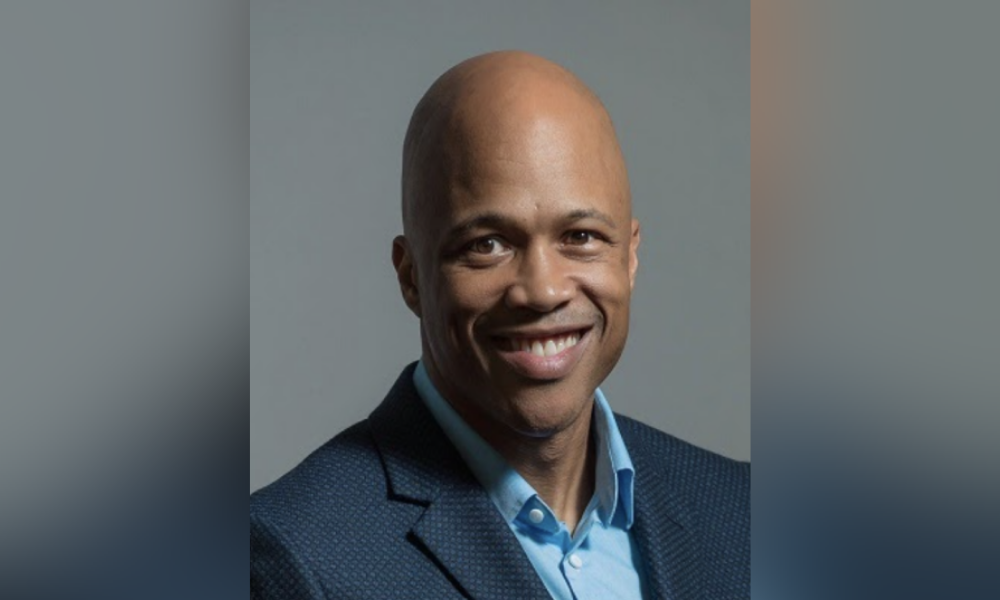Tech geared to help distressed mortgage holders, renters

A new fintech start-up aims to help reduce foreclosures with a tech-driven platform designed to link distressed mortgage holders or renters to peers or others that can help them.
Sawa Credit, Inc., a fintech start-up based in Oakland, Calif., recently emerged from stealth mode with $3 million in seed funding designed to fuel development of its core concept – a community debt servicing technology platform that will keep underserved borrowers from defaulting on mortgages or rent.
“It helps the mortgage industry because one of the things that we will know is, because we will have a good relationship with these customers… we will be able to help people avoid delinquency,” said Sawa founder and CEO Charles Phillips (pictured). “That means we avoid default. In the mortgage industry, as you know, no matter what the reputation is outside, it has virtually no interest in people defaulting on their homes.”
The idea is to help borrowers who might otherwise not have other options to maintain their mortgage or home rental.
“Our goal is to serve underserved people and it is to help people who feel financially fragile,” he said. “Everything we do is in service of that.”
Read more: COVID-19 creating uptick in distressed properties
Precursor Ventures led the oversubscribed round, with additional funding from Allegis Capital, Commerce Ventures, Clear Heights Ventures and Slow Ventures.
Phillips most recently was founder and CEO of Xaraxis, a procurement company that provides goods and services for the U.S. Department of Defense globally. He’s a veteran entrepreneur and has previously held positions at Siebel Systems and The Boston Consulting Group.
Tech details to come
There are four “Cs” to access credit – a credit score, capital, collateral and capacity, and Sawa said it plans to address a missing fifth “C” – community. Sawa, in Swahili, means “all good, no worries,” the company notes in its funding release.
Plans call for the money to fund added behavioral science and machine learning-driven research toward development of an online community of homeowners and renters based on their beliefs, situations, socioeconomics and geographies. The goal is to use behavioral, science-driven incentives to help improve group members’ creditworthiness and financial help, according to the company.
Design of the platform is underway, Phillips said.
“We plan to use the money to continue to perform behavioral studies of potential customers and borrowers, and we plan to use it to build out some of the technology that’s necessary for what we’re trying to do,” he added.
The point, he said, is to veer differently from the path that most start-ups typically go.
“Our impression is that a lot of start-ups create technology and then try to find a use case for that technology, or at least have a use case and then try to match that use case,” Phillips said. “What we’re really trying to do is work to enable people and then encourage people to communicate with each other around their financial health, and we think the way to do that is to create technologies that enhance that and enable them.”
Community help
A point of concern is that some mortgage underwriters leave customers with a higher debt-to-asset ratio than is typically considered safe, Phillips said, leaving customers with a higher risk of foreclosure and delinquency rate.
Using the platform, he said - relying on algorithms and the machine learning additives – would help group customers together in helpful ways.
“We want to put people together into groups so they can offer to help each other if necessary, or they can ask for help,” Phillips said.
Payment transfer technology might be an option to help one person lend to another to make up a shortfall in a mortgage payment. Technology in general will help the platform succeed, he said, giving struggling borrowers a way to maintain their mortgages or rental homes.
Read next: Distressed property market at a tipping point
“Technology has a very big role in terms of helping people have enough visibility into each other’s [needs] in a safe and regulatorily compliant way, to know when they need to help each other,” Phillips said. “It has a great role in terms of matching people with each other such that if you look into any individual group, everybody in the group should not be vulnerable.”
Revenue options
In some cases, he said, altruistic individuals will donate through the platform. Ultimately, Phillips said, Sawa would produce revenue by backstopping some of the loans.
“If someone is in a scenario where they owe $500, and they are short by $100, then we want to help them pass the hat through the community, and to get some portion of that $500, we are ultimately customer focused,” Phillips said. “If they get the full $500 from the community, great. If they don’t and they’re in a position… to get $300 from the community and they’re short $200, then we want to facilitate that loan of $200.”
He added that Sawa will have resources to enable both, as well as allowing an individual to pay back money it facilitates “at a reasonable rate.” Other financial possibilities involve partnering to facilitate loans with good underwriting criteria.
The focus, he added, will be to grow the business in an ethical way.
“We’re dealing with vulnerable people [and will] be very, very careful about how we think about monetizing,” Phillips said.



